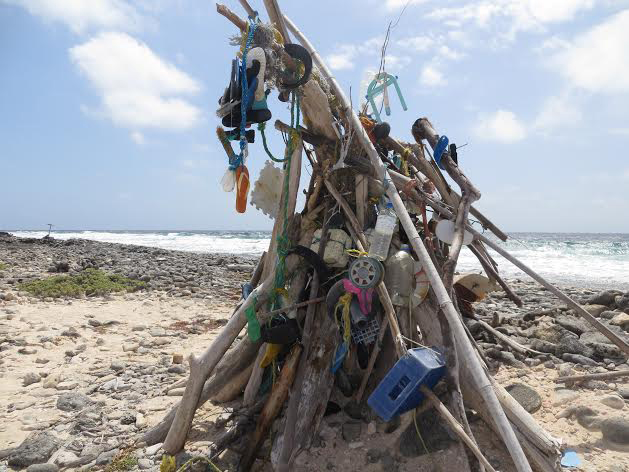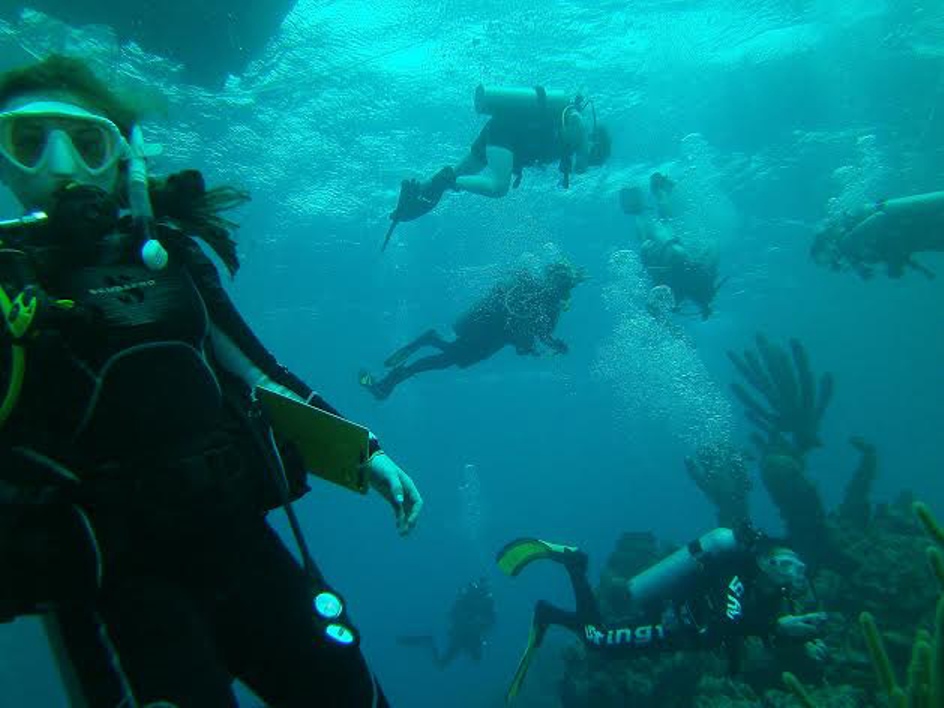Tropical paradise trashed: Conservation biology in Bonaire

This year, I spent my spring break studying abroad in Bonaire, an island municipality of the Netherlands located in the Caribbean, scuba diving with my Tropical Ecology class led by Dr. Dave Unger, assistant professor of biology. You couldn’t ask for a better spring break by my standards. I love travel, I love scuba diving and I love the ocean.
I could talk to you for days about the beauty and magic of coral reefs and why it is so worth it for you to get your Open Water SCUBA certification. I want to use this outlet, however, to discuss with you one aspect about my trip to Bonaire that haunts me, has motivated me to learn more about this problem and begin to change the way I live my life.
The problem is that plastic trash is quickly choking out the life of our oceans. The existence of all life on Earth relies on the health of the oceans, and we are in a nose dive.
Now, I know that sounds dramatic. All life on Earth depends on the health of the oceans? Yes, it really does. We live on an ocean planet. If you take a step back and look at our Earth, it is a blue planet made of mostly water. The ocean environment is a basic element that makes all life on Earth possible. This massive system drives the habitable climate we enjoy, thereby providing most of the freshwater and oxygen essential to our lives, as well as our crops. Our individual futures, and the ocean’s future, are one.
How are we treating the blue heart of our planet? For centuries, people have regarded the ocean as an inexhaustible supply of food, a useful transport route and a convenient dumping ground simply too vast to be affected by anything we do. But human activity, particularly over the last few decades, has finally pushed oceans to their limit.
Daily, we consume, consume and consume. We go to Isaac’s for lunch and grab a plastic straw and lid. You go into the supermarket in the United States and most things you will see and buy are wrapped in plastic. Even most fruit, perfectly wrapped by nature, is wrapped in plastic in most stores. Most of this plastic still exists on this little blue planet and much of it is in the ocean.
The island nation of Bonaire, just like anywhere with coastline, reflects the reality of plastic pollution. We walked on beaches with trash from Columbia, the United States, Japan and Germany that has washed up, in some places the trash was several feet thick. Febreze bottles, balloons, packaging material, toothbrushes, tampon applicators, children’s toys, sunglasses, thousands and thousands of drink containers and anything else you can imagine was washed up on the beaches of Bonaire.
Only a small percentage of the plastic trash in the ocean washes up onto shore, so each piece of trash we found on the beach is a representative of millions of counterparts in the open ocean, on the surface of the ocean, and plastic has even been found miles deep in the ocean.
Even worse, did you know that in the Pacific Ocean there is an area, estimated by some sources to be twice as big at the continental United States, full of trash?
So, what are we going to do about it? Companies want us to buy their products, and they want to create these products out of the cheapest material available. So our solutions need to start with what we choose to buy, and what we choose to refuse. Single use and disposable plastics are the greatest source of plastic pollution, on land and in the ocean.
So, let’s make a lasting change, and refuse to use plastic for one-time purposes. Let’s tell food services that it is not okay to have disposable utensils and cups on our campus. Let’s bring our own cups instead of using that red Solo cup.
Let us save the blue heart of our planet from our destructive plastic use. While you are at it, get SCUBA certified, and see for yourself why the ocean is worth protecting, besides the fact of our existence.

